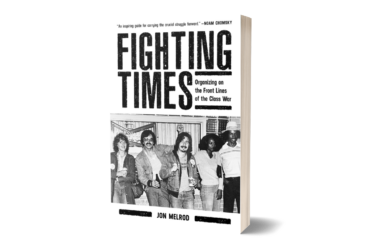Grammy winner Ian Brennan brings his global mission to document disenfranchised voices home
By Aidin Vaziri
San Francisco Chronicle
October 11th, 2019

For years, Ian Brennan has traveled the world with recording equipment, documenting the voices and stories of the underrepresented or, in some cases, almost erased populations.
He has produced albums by musicians in Rwanda, South Sudan, Cambodia, Pakistan and Vietnam. In 2015, he earned a Grammy nomination for “I Have No Everything Here,” a collection of songs by the staff and inmates in the maximum security Zomba Central Prison in the impoverished nation of Malawi.
With his latest project, Brennan, a 53-year-old Oakland native, and his wife, Marilena Umuhoza Delli, a photographer and documentary filmmaker, wanted to do a project closer to home.
“The place I was born has a huge problem with poverty and homelessness,” Brennan said, speaking between his shifts as an independent violence prevention teacher in the East Bay. “It was something that always seemed like it was a project that we would do someday, when it needed to be done. But it seems to be escalating all the more.”
Brennan has been making records for 36 years, initially as a solo artist and more recently as a producer for acts such as Ramblin’ Jack Elliott, Peter Case and Tinariwen.
Beginning in 1996, he spent five years hosting a largely acoustic live music showcase at Brain Wash laundromat in San Francisco, recording performances on portable equipment and compiling them on a series of compilation albums, “Unscrubbed: Live From the Laundromat.”
He brought that same unorthodox approach to “Homeless Oakland Heart,” which he released on World Homeless Day on Thursday, Oct. 10. Brennan and Delli spent a month visiting encampments in West Oakland and Berkeley, joined by homeless outreach advocate Melkamu, asking people living in tents and under debris-strewn freeway overpasses if they would like to participate.

Brennan and his team had to bypass crack dealers and chained pit bulls, poke around piles of shopping carts. An elderly man with an 8-inch sheathed blade squared off with him, forcing him to fall back on his years working in psychiatric emergency rooms for Alameda County and Oakland.
They recorded the improvised contributions outdoors, without overdubs.
The resulting album is made up mostly of songs lasting under a minute and constructed out of spoken word pieces, filled with ambient noise and makeshift instruments, sounds that are raw, sometimes eerie.
The producer likens “Homeless Oakland Heart” to avant-garde works like Captain Beefheart’s “Trout Mask Replica” and Alvin Lucier’s “I Am Sitting in a Room,” or early punk records.
“I have found that everybody has music in them,” Brennan said. “Whether it’s good or bad is not really my intention so much as something that reflects a perspective that might not otherwise be heard.”
Brennan said the contributors chose to remain anonymous; songs are credited to Homeless Oakland Heart Collective.
“They’re adults, and they have a right to make a choice,” he said. “All of them were paid, all of them were given food, many of them were given clothing. They said, ‘Please do something with this. Please get this out there. Please get our stories out there.’”
Brennan realizes keeping the contributors anonymous may set off some red flags for some, but he said any arguments of the kind are misplaced. “If that’s exploitation versus walking past somebody every day and never even knowing what they sound like, or what they might have to say, and what they think, then I think people need to take a look in the mirror,” he said.
All profits from the project will be donated to the Coalition on Homelessness. His fifth book, “Silence by Sound,” which was published in September by PM Press, also includes a chapter on the “Homeless Oakland Heart” project.

Brennan made headlines nearly a decade ago when he pushed San Francisco to approve his plan to place human-shaped bronze markers at spots where homeless people had died in the city, like the stars on the Hollywood Walk of Fame. The Board of Supervisors approved the idea, but the Chamber of Commerce urged then-Mayor Gavin Newsom to veto the resolution.
While Brennan would still like to pursue the idea of the markers, he thinks the recordings may be a more powerful way to honor disenfranchised people.
“I think recording at its best is an empathy-building device — probably the greatest technology we have for increasing empathy,” Brennan said. “Films, books and music are where we can listen to someone and understand them better. And a person who’s dead can speak to somebody who’s living generations later. That’s what I hope for these records, that maybe in 50 years somebody hears it and it touches them in some way. To me, that’s, that’s a success. That has so much more meaning than a million streams of a crap piece of music.”
- Follow: Aidin Vaziri Aidin Vaziri is The San Francisco Chronicle’s pop music critic. Email: [email protected] Twitter: @MusicSF





